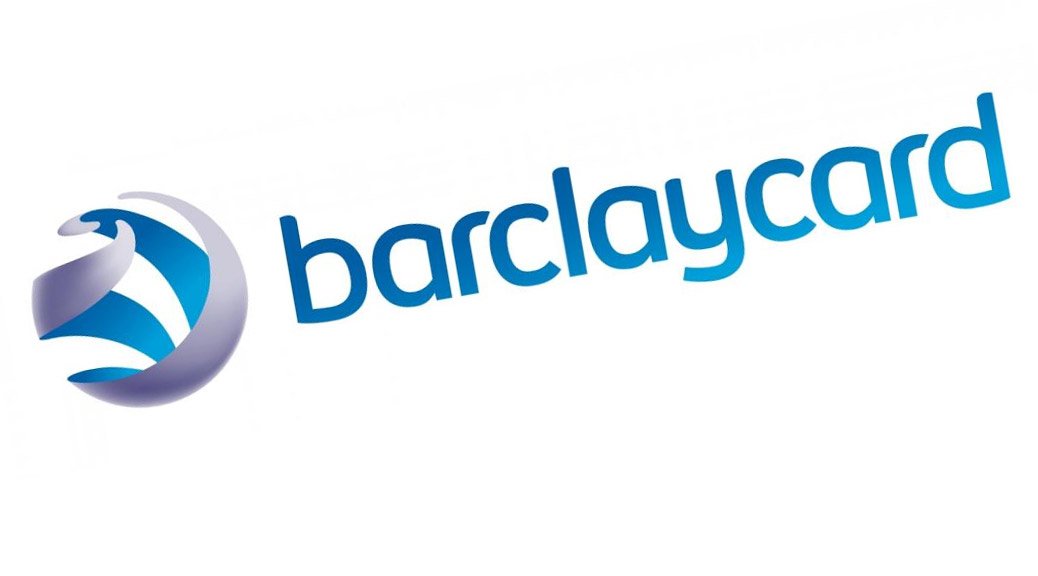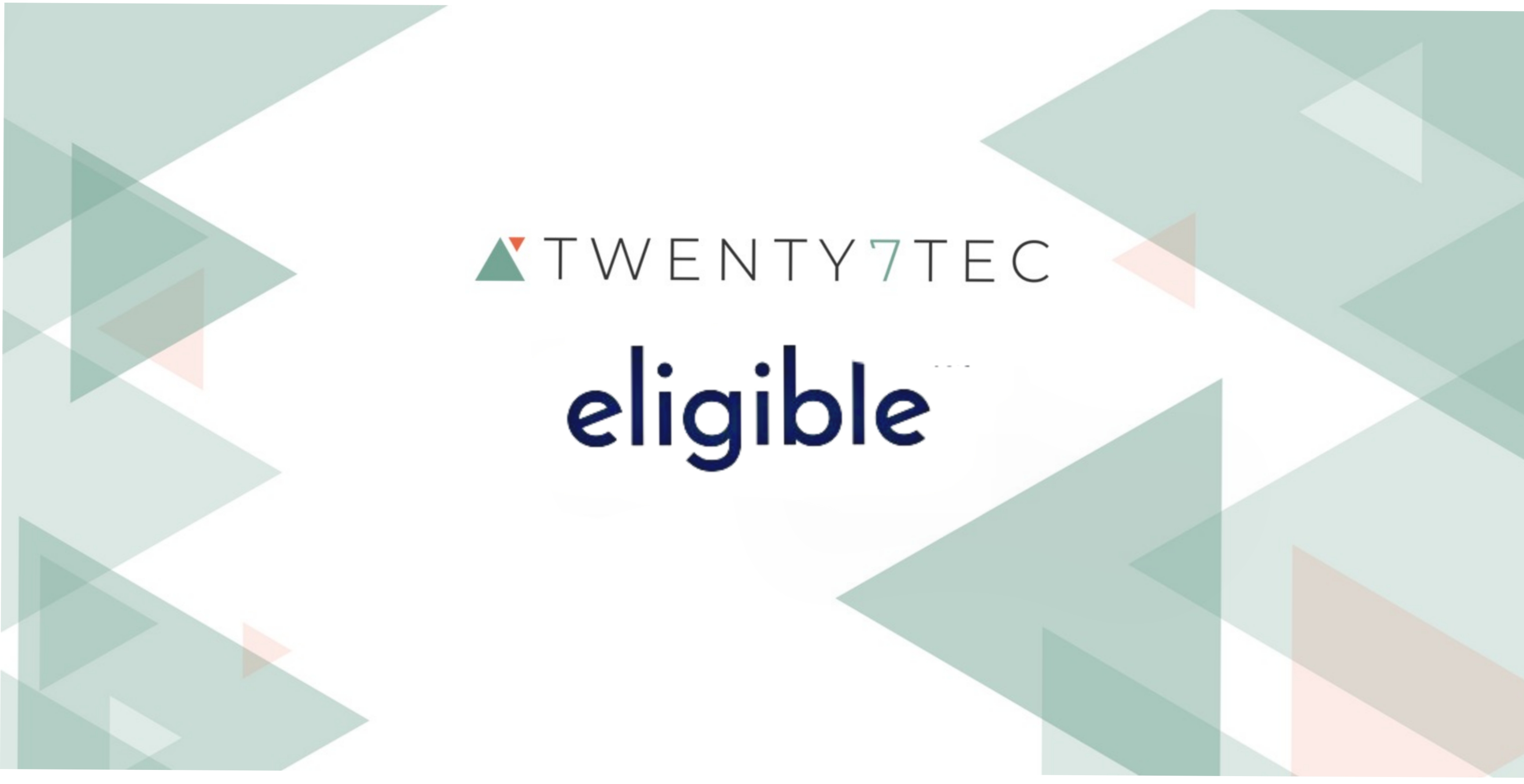Published
- 02:00 am

Plenitude, the Financial Crime, Risk and Compliance specialists offering advisory, transformation services and innovative RegTech products, has appointed Barbara Patow as Senior Advisor. Barbara will play a key role in providing advice and assisting clients with enhancing their Financial Crime Compliance (“FCC”) control frameworks in order for them to more effectively manage financial crime risk. She will also help guide the business strategy and growth plans for Plenitude.
Illicit finance supports some of the worst problems facing society today including: terrorism, human trafficking, drugs trafficking and illegal arms dealing - and more needs to be done to identify and stem the flow. Significant steps have been taken by regulators and the combination of heightened regulatory scrutiny and increased enforcement actions means it has never been more important for organisations to meet their legal and regulatory obligations.
Plenitude works with a wide array of financial institutions across the world, providing deep subject matter expertise, advisory and transformation services on some of the largest and most complex FCC initiatives in the industry. Beyond helping clients mitigate FCC risk, Plenitude improves the productivity of compliance divisions through the use of innovative technology to automate, streamline compliance workflows and provide enhanced insight into the vast array of FCC laws, regulations, guidance and risk indicators.
Having worked in the banking industry for over 30 years Barbara Patow has extensive knowledge of financial crime risk and operational management. Prior to joining Plenitude Barbara held senior leadership roles at HSBC in the Financial Crime & Compliance Divisions, including Global Head of AML and Global Head of FCC for Global Banking and Markets. She was also the Head of Correspondent Banking and Chief Operating Officer for the Global Liquidity and Cash Management business developing and implementing FCC control frameworks.
Commenting on the announcement, Barbra Patow said: "Combating Financial Crime is a priority in our society. Our clients’ transformation programmes are not just about the practical implications of implementing FCC frameworks but an organisation-wide effort to drive cultural change to enhance the understanding that everyone has a part to play in managing this risk. Plenitude’s work offers a compelling opportunity to make a real and important difference to our clients’ transformation.”
Alan Paterson, Plenitude Managing Director, added: "We are delighted to welcome Barbara onboard as a Senior Advisor given her extensive FCC industry experience and expertise. Barbara will play a key role in terms of providing strategic advice and guidance on our business strategy and growth plans, alongside serving our clients with first rate advice. We are confident that both Plenitude and our clients will benefit from Barbara’s extensive experience and honored that we have been able to secure Barbara as part of the team during this important growth phase for Plenitude.”
Plenitude is expanding its technology offering and last month launched RegSight, a cloud-based platform to identify and manage FCC obligations, improve operational efficiency and ultimately drive more effective financial crime risk management.
Related News

Simon Wilson
Co-Head, Payments at Icon Solutions
For several decades, incumbent banks have held a comfortable leadership position in payments. see more
- 04:00 am

Boku reported strong results for FY20, with adjusted revenue and EBITDA growth of 20% and 106% respectively. The Payments business benefited from increased consumer demand during the pandemic, while the Identity business had a more difficult year. Trading year to date has been strong for both businesses and management is confident of meeting expectations for FY21. We have made minor changes to our FY21/22 forecasts. The evolution of the platform to address the wider alternative payments market provides upside potential to our forecasts and the share price.
Valuing the Payments business alone using the average FY21e EV/EBITDA multiple for its peer group results in a per share value of 197p, providing upside to the current share price. The Identity business could provide further upside - including it at its unimpaired cost would take the per share value up to 203p.
Click here to view the full report or here to sign up to receive research as it is published.
All reports published by Edison are available to download free of charge from its website
Related News
- 04:00 am

Exactly a year after the first national lockdown, new research from Barclaycard Payments, which processes nearly £1 in every £3 spent in the UK, reveals the 10 biggest shifts in consumer behaviour which have emerged as a result of the pandemic, and are set to outlive it*.
With increased time at home, there have been significant changes in the way people consume goods, including what they buy, the channels that they buy through and how they like to pay. Barclaycard Payments has partnered with Tom Cheesewright, one of Britain’s leading Futurists, to understand what these shifts mean for the future of British retail.
Barclaycard Payments’ Top 10 ‘lockdown legacies’:
1. Online grocery shopping surge
Online grocery shopping has seen consistent growth over the past 12 months, with recent Barclaycard data revealing a 115.2 per cent increase in online grocery spend in February alone, compared to the same month last year. This trend is even more pronounced among the over 65s, whose online supermarket spend more than quadrupled (+332.5 per cent) year-on-year. Almost six in 10 Brits (57 per cent) say they’ll continue to buy at least some of their groceries online even after all restrictions end. However, brick-and-mortar supermarkets will remain crucial for the four in ten (39 per cent) people who plan to continue buying all of their groceries in-store.
2. Growth in home deliveries
With the closure of non-essential shops for extended periods of time, consumers have been receiving an average of two extra deliveries per month since March 2020 (seven parcels now vs five before March 2020). This equates to over 86 packages in total over the course of a year. This growth in deliveries is here to stay, with over half of people expecting to receive either the same amount (47 per cent) or more (10 per cent) in the future.
3. ‘Click & Collect’ boom
One in three (30 per cent) consumers say they have used ‘Click and Collect’ more frequently since the start of the pandemic. On average, shoppers now use the service three times per month compared to twice a month in 2019. Almost all (90 per cent) of those who have been using ‘Click and Collect’ more often since the start of the pandemic will keep this up once all restrictions have been lifted.
4. Rising rate of returns
In the last 12 months, over half (51 per cent) of Brits have returned items that they have bought online, compared to 47 per cent in the same period in 2019 and 46 per cent in 2016. 12 per cent of Brits report returning more because they are not able to try items on in-store and nine per cent have used home deliveries as a try-on service, ordering multiple sizes and colours in the absence of a shop changing room. Returns pose a number of challenges to retailers, both logistically and financially, so it will be interesting to see whether the market moves towards disincentivising excessive returns once lockdown restrictions end, by tightening up returns policies.
5. “Come to me” retail
Since the start of the pandemic, one in 10 (9 per cent) consumers have used “come to me” retail, where a concierge-style service delivers clothing to customers’ homes and waits while they try it on, so that they can immediately return any items they don’t want. The convenience of ”Come to me” is proving popular, with 94 per cent of customers planning to use it again. Of particular interest to fashion retailers, a third (34 per cent) of shoppers said they would be more inclined to buy from a brand offering “come to me” retail as an option, while four in ten (38 per cent) said they would prefer this service to receiving deliveries and returning unwanted items by mail. While this method might not be scalable for brands dealing with higher volumes, it’s a great example of how smart businesses are looking for ways to provide smoother and more seamless shopping experiences.
6. Mobile payments soaring
Lockdowns have changed not only what we buy and where we buy it, but also how we pay for our purchases, with mobile payments growing substantially in the past year. In fact, Barclays consumer debit data reveals that Apple Pay grew rapidly in 2020 compared to 2019, in particular in Leisure & Entertainment, where online debit transactions increased by 70 per cent. With ‘digital wallets’ and mobile payment services soaring, physical wallets are becoming less popular. Three in ten (30 per cent) consumers and over half of 25-34-year olds (55 per cent) say they now regularly leave their wallet or purse behind because all they need is their mobile phone.
7. Staying local
One major positive from the past year is the support people have showed for local and independent businesses, with almost two thirds (64 per cent) of Brits choosing to shop closer to home. Barclaycard Payments data shows shoppers spent an extra 63.3 per cent in February at food and drink specialist stores, such as butchers, bakeries and greengrocers, compared with the same month last year. Shopping locally is set to be a lockdown legacy, with nine in ten (91 per cent) Brits who have been shopping locally throughout the pandemic saying they will keep doing this to support smaller and independent businesses even after all restrictions end.
8. More mindful spending
Nearly three quarters of people (71 per cent) now think more carefully about how they spend their money and nine in ten (92 per cent) of those who do, planning to continue being more mindful of their spending habits even after lockdown lifts. With more time available to scour the internet at home for the perfect gift, half of Brits (50 per cent) also say they have put more thought into what they’ve bought for others, with the majority (83 per cent) of those confident this behaviour will continue. The additional time has also meant people are doing more research to ensure the products they buy are made ethically (46 per cent), with 88 per cent planning to continue this shift in behaviour after lockdown ends. Retailers can take advantage of this by highlighting their ‘mindful’ credentials; nudging more consumers to make a purchase.
9. Dine-at-home experiences
In an attempt to recreate the restaurant experience at home, 10 per cent of Brits tried a DIY meal kit for the first time during lockdown, and 9 per cent have spent more money on them since March 2020. Around a quarter (24 per cent) of those who have been ordering at-home restaurant kits, will continue doing so even after hospitality venues reopen and one in five (21 per cent) will still order at-home alcoholic drinks tasting experiences. While many bars/restaurants may have seen this type of product as a lifeline during lockdown, dine-at-home experiences could still be valuable sources of revenue even after they’ve reopened their doors.
10. Investing in infrastructure
Encouragingly, Barclaycard Payments’ research with retailers shows that small and medium sized businesses are responding to this new landscape, with nearly three in ten (29 per cent) planning to invest in new equipment and technology in 2021, and (13 per cent) viewing technology as the top opportunity for growth over the next year**.
Tom Cheesewright, one of Britain’s leading Applied Futurists, comments on these ‘lockdown legacies’ and what they mean for the retail industry post-pandemic: “Echoes of this pandemic will be heard long after lockdown is lifted through a sustained shift in our buying behaviours. Changes we expected to happen over a decade have been condensed into a year, leading us to ask: what's next?"
“The trend towards online and concierge services look set to continue, with shoppers seeking ever greater convenience and clawing back time to spend elsewhere. Retailers that can strip friction from their sales process while making us feel special will continue to succeed."
“Meanwhile, we continue to seek a greater connection with our local community, going against the all-digital trend. Suburban stores that have survived lockdown look set to thrive when it lifts.”
Kirsty Morris, Managing Director at Barclaycard Payments, said: “A year of on-and-off lockdown restrictions have accelerated many retail trends and created some new, unexpected ones. We can’t wait for the pandemic to be over, but in many ways it’ll be here forever through the consumer habits it has helped shape."
“Retailers need to respond to these trends. Now more than ever, Brits expect shopping to be convenient, quick and good value-for-money. For merchants this means investing in e-commerce offerings and payments infrastructures to accommodate more customer-focused shopping experiences. Barclaycard’s Smartpay gateway, for instance, supports one-click purchases and allows buyers to pay with a number of different methods in a smooth, safe and seamless way.”
Related News
- 02:00 am

Veriff, a global identity verification provider is partnering with Joompay, a social finance app enabling money transfers in Europe. The Joompay app allows people to send and receive money from anyone in an easy and fun way. The app makes opening an account in Europe more straightforward and safer than ever, and with this partnership, Veriff adds an extra layer of safety and security.
Veriff verifies the identity of Joompay users to help the company meet the KYC and AML requirements, while also preventing identity fraud. As a result of COVID-19 pandemic, cash usage has decreased significantly across the globe while the demands for digital banking are higher than ever. People cannot meet in person - at the bank or to exchange cash - as easily as they once could and need alternative ways to send and receive money safely. To meet this growing demand from consumers, Joompay’s P2P payments model provides users with the ability to make simple, fast, and secure transactions across Europe.
According to Janer Gorohhov, Veriff co-founder and CPO, as businesses move online, people also expect their services to be frictionless, intuitive, and fast. “Innovative fintech companies like Joompay make financial services easily accessible to more people online and provide the great user experience we’ve all come to expect from digital brands today. We are glad to provide a reliable and secure identity verification service to prevent online identity fraud as Joompay’s customer base continues to grow around the world.”
“Veriff provides a critical component as we look to instill trust among our customers so they can send and receive money with confidence,” Yuri Alekseev, CEO and co-founder of Joompay said in a statement. “Veriff’s commitment to providing the highest quality identity verification solution gave us great trust in partnering with them.”
Joompay app users can make transactions, regardless of whether the transfer recipient is Joompay users or not — you only need to know their email or phone number. Joompay connects to any existing debit, credit card, or bank account. Recently Joompay announced its attainment of Visa Principal Member Status, driving the rollout of its new cards across Europe.
With accelerated digitalization, online identity fraud has become a more serious concern for many people and businesses. Meeting KYC and AML requirements do not prevent identity fraud or protect companies from fraudsters. According to Veriff’s recent Fraud Report, the most prevalent type of fraud in fintech is identity fraud where fraudsters try and take the identity of another person. The highest fraud rates in the fintech sector are seen in Europe with Romania taking the lead, followed by the United Kingdom and Spain.
Related News
- 04:00 am

Mortgage technology solution providers Twenty7Tec and Eligible ai today announce that they have entered into a partnership with the intent of delivering solutions that will encourage advisers to use technology to help increase retention rates of existing clients.
With this partnership, Twenty7Tec and Eligible will collaborate in the design, development and deployment of technology that helps advisers easily and automatically maintain regular contact with both existing and new clients through the client lifecycle.
Twenty7Tec designs and builds technology that is intended to make the process of searching, applying for and obtaining a mortgage, simpler, faster and more efficient. The company’s CloudTwenty7 platform is used by over 14,000 advisers to both search and apply for mortgages for their clients.
Retain is Eligible’s client retention tool which communicates on behalf of firms, picking up clients at completion. Retain supports advisers by automatically educating and keeping in touch with clients throughout their product lifecycle up until review.
James Tucker, CEO of Twenty7Tec, commented:
“We are very aware of the role that technology needs to play in helping advisers maintain regular contact with their clients, ensuring the continued delivery of excellent customer service and supporting client retention. In Eligible ai, we have found a partner who also understands the role that technology providers need to play in supporting advisers with retention, and we look forward to working with them in the months and years ahead.”
Rameez Zafar, CEO of Eligible, added:
“We’re excited to announce this partnership with Twenty7Tec. We believe retention starts the day after completion – so this partnership is about having connectivity that facilitates this. Our shared vision is to jointly design and deliver solutions that ensure advisers retain as many of their clients as possible in the face of increasing competition. With potential challenging markets ahead, advisers may see their customer acquisition costs rise; and this partnership will streamline retention to offset this pressure.”
About Twenty7Tec:
Twenty7Tec’s CloudTwenty7 platform is designed to make the process of searching, applying for and obtaining a mortgage simpler, faster and more efficient. The platform is used by all participants in the mortgage market, from lenders to mortgage advisers, to comparison sites and even end customers.
About Eligible Ai.
Eligible.ai is an award-winning mortgage software technology firm, established in 2017. Eligible is focused on building personalised relationship solutions for financial services in the mortgage market. Their pilot solution is Retain - a smart client engagement platform designed to help advisers keep clients for life. Eligible is on a mission to help financial services keep clients forever, they work closely within industry to support productivity, save time, and reduce costs and deliver solutions that are product-market fit. They are continuously making improvements to their platform to help streamline and automate the mortgage client lifetime journey and are helping firms make the most out of their most valuable asset, their data. Currently allowing over 700 advisers to have peace of mind that their clients are being taken care of, whilst they can focus solely on advice.
To learn more visit https://eligible.ai
Related News
- 06:00 am

Aunalytics, a leading data platform company delivering Insights-as-a-Service for enterprise businesses, today introduced its next generation of DaybreakTM for Financial Services designed for mid-sized banks and credit unions. The enhanced solution empowers community financial institutions with advanced analytics and valuable business insights to improve customer relationships, strategically deliver new products and services through data-driven campaigns and drive competitive advantage with Aunalytics’ side-by-side digital transformation model.
As with many businesses, financial institutions have a plethora of data that is typically siloed across many systems throughout the organization. Aggregating and integrating this data is a major challenge that can be difficult and time-consuming, if not nearly impossible, such as with transactional data. According to leading analysts, 70 percent of big data and analytics deployments will fail to meet cost savings and revenue generation objectives due to skill and integration challenges.
“We have data; every bank has data—tons of it. What we didn’t have was a way to integrate all this data into something useful,” said John Kamin executive vice president and chief information officer, Provident Bank. “We embarked on a journey that would not only allow us to turn data into information but enable us to look forward with predictive analytics and AI capabilities. Aunalytics helped us jumpstart that vision.”
Built from the ground up for mid-sized banks and credit unions, Daybreak for Financial Services is a cloud-native data platform with advanced analytics that empowers users to focus on critical business outcomes. The solution cleanses data for accuracy, ensures data governance across the organization, and employs artificial intelligence (AI) and machine learning (ML) driven analytics to glean customer intelligence and insights in focus from relevant business information. With daily insights powered by the Aunalytics® cloud-native data platform, industry intelligence, and smart features that enable a variety of analytics solutions for fast, easy access to credible data, users can find the answers to such questions as:
- Who are my current customers that have a loan and not a deposit account?
- Who are my most profitable members?
- Who are my customers at risk for churn?
- Which loans were modified from the previous day?
- Who are my current members with a HELOC that are utilizing less than 25% of their line of credit?
“As customer interactions become increasingly digital, community banks and credit unions are losing the competitive advantage that local, personalized, white-glove service has traditionally afforded them and, at the same time, they lack valuable business insights that untapped data could provide to improve their operations,” said Katie Horvath, VP of Marketing and Communications, Aunalytics. “Daybreak for Financial Services offers an opportunity to turn that around and regain advantage with the ability to target, discover and offer the right services to the right people, at the right time.”
New features in Daybreak for Financial Services include:
Golden Record Assurance:
- Daybreak cleanses data for accuracy and governance and transforms disparate data forms and formats into a common language for building data models. Data fields and records are matched and merged into a golden record for a single source of truth, ready for analytics.
- The industry-intelligent data mart is designed specifically for banks and credit unions, allowing them to automatically find customer data across the organization such as lending, mobile banking, ATM, CRM, wealth and trust. Extracting company data from all business units that is accurate and streamed in real-time, enables better decision making. Aggregated data reveals a 360-degree view of customer behaviors and insights for data-driven campaigns and greater customer and product targeting capabilities.
Smart Features:
- Aunalytics data scientists create high value data fields derived from a company’s internal data and added to data models capable of answering industry and functional questions. Business users have access to actionable data, enriched with Smart Features, to answer impactful questions for the first time. For example, if a banking customer has improved a credit score and is now in the “excellent” range, the bank can take action and let the customer know that if interested in a home equity loan, s/he qualifies for low interest rates.
- In addition, Daybreak offers a significant advantage with automated data enrichment and pre-built connectors to most major core systems such as CRMs, loan and mortgage systems, and other heavily utilized financial industry applications. Mid-sized banks and credit unions now have access to external data, allowing them to understand more about their customers’ relationships with other companies and identify products and services that customers might be interested in. This presents opportunities that may have otherwise been missed - learning that a customer has outside investment and mortgage accounts might prompt outreach to the customer to make a switch.
Natural Language Processing (NLP) and Insights:
- Daybreak is built for the non-technical business user to query data using natural language searching, and visually display golden records of data, analytics results, and insights. Users do not need to know SQL, computer coding, database technical knowledge or IT expertise to find answers to their most important business and IT questions.
- Insights allows users to better understand the information in their data by creating visualizations of their query results. Visualizations can be easily configured and viewed as intuitive graphics, not through complex database filtered lists of endless fields, so users can answer important business questions about customers.
Related News
- 09:00 am

ICA, the Paris-based fintech that is helping financial institutions turn their big data challenges into competitive advantages and unlock vital business-user-led opportunities, today announced a strategic rename to “Opensee”. This announcement marks a significant milestone in the evolution of this fast-growing fintech that has already helped Tier 1 financial institutions harness hundreds of terabytes of data and deliver self-service deep data analytics capabilities designed to readily integrate with financial institutions’ information systems infrastructures.
This strategic rebrand signals the company’s evolution from an innovative capital markets data analytics platform to its position today as market challenger. Developed from a frustration at not being able to find a suitable Big Data analytics solution that enabled ICA to easily and efficiently manipulate, explore and perform what-if analysis on the hundreds of billions of data it was handling, ICA decided to build its own. So successful has this investment proven, that the rename to “Opensee” marks a strategic repositioning to extend and build on its capital markets heritage to further help banks, financial institutions, hedge funds and asset managers tackle their data challenges, at scale.
Opensee gives financial institutions’ business users the autonomy to dive deeper into their data, perform any aggregation and more broadly, any analytics on demand (thanks to user-defined functions). The company’s rapid growth, building a trusted client base across Tier-1 banks, is testament to its success in pushing the boundaries of self-service data analytics for financial institutions. Opensee helps financial institutions harness 100% of their vast quantities of data instantly and interactively on demand, to manage risk more efficiently and proactively and leverage their data to improve execution.
Stephane Rio, Founder and CEO of Opensee commented, “Our new name and identity rebrand signals the next phase of growth for Opensee. We wanted a name that more closely captures our vision on big data and embodies our long-held belief that there is a better way to help business users across financial institutions analyse today’s very large amount of available data deeper and faster. The extensive experience of our team in the financial industry, combined with our cutting-edge technology solutions have seen us establish successful partnerships with Tier-1 banks in an open and collaborative way to build the solution the market was looking for. We are excited to start this new chapter of growth.”
The new visual identity will support communication with a wider audience across the global financial community as the company continues to expand, scale and build on its success. The logo, brand and strapline ‘empowering data divers’ captures the mission objectives. In addition, the company will launch a new website www.opensee.io as a new central resource for clients with more detail on the Opensee Enterprise Solution.
Related News
- 09:00 am

The EPLAN Virtual Fair is opening its digital doors this year for the sixth time and for two full days in a row for the first time. Visitors can expect a wide range of topics covering professional engineering and integrated, end-to-end processes. Live talks for c-level executives, customer best practices and a new partner area offer attendees constructive inspiration. Topic-specific and country-specific webcasts and software demonstrations of the new solutions found on EPLAN Platform provide incen-tives and outlooks for further developments, includ-ing in cloud contexts.

EPLAN Virtual Fair.jpg: The global EPLAN Virtual Fair is taking place for the sixth time on 28 to 29 April 2021. (Photo from 2020)
Just two weeks after the digital Hanover Messe, the time will have come: EPLAN will be opening the doors to its biggest digital event of the year. The EPLAN Virtual Fair a globally established format that is taking place for the sixth time runing is awaiting with a new, clear design and numerous topic-specific expansions for management and users alike. “After the success of the past years, we’re expand-ing the EPLAN Virtual Fair to cover two full days across different time zones,” says EPLAN Software & Service Managing Director Haluk Menderes. There’s a simple reason for this: there are just more topics to cover and visitor interest is on the rise. With almost a 20 per cent increase in participants from more than 70 countries in 2020, the importance of this major virtual event is clear.

Haluk Menderes.jpg: “After the success of the past years, we’re expanding the EPLAN Virtual Fair to cover two full days across different time zones,” says EPLAN Software & Service Managing Director Haluk Menderes.
Management and users: the right programme for everyone
Top-class leadership talks at the management level on the ecosystem of industrial automation, the potential to be found in industrial panel building, and the topic of roundtrip engineering are just a few of the many themes being covered throughout the multifaceted conference programme. This year those themes are being supple-mented with new live talks for industry management, including in the disciplines of automotive, energy, building automation, maritime and process industry.
There will be six different live demonstrations on software topics each day, and experts will be providing practical insights into EPLAN Platform innovations. The opportuni-ties of the new cloud services as part of EPLAN ePulse are also on the programme, not to mention the efficiency potential that can be found in control cabinet and switchgear system engineering. Last but not least, there will also fun to be had, with various online games where attendees will be able to (virtually) compete against one another prizes include three online update trainings for EPLAN Platform.

Leadership-Talks.jpg: Leadership talks at the management level are being supplemented with new live talks for industry management. (Photo from 2020)
Partners getting their own presence this time
There is a newly created community area, offering all the companies participating in the EPLAN Partner Network the possibility to participate with their own “onsite” presence. It is set up to be a small trade show within the Virtual Fair. Numerous opportunities for networking are yet another reason for visitors from around the world to attend: a live chat, this time including a 1:1 video chat, offers everyone interested the chance to talk shop and exchange ideas across national borders in a virtual space.
People can register free of charge at:
https://www.EPLAN-software.com/virtual-fair/
Related News
- 09:00 am

Imvision, a market leader in enterprise API security technology, is releasing a new report today. “API Security is Coming” reveals major gaps in API security based on insights from over 100 senior security leaders at large enterprises in the United States and Europe.
With 9 out of 10 security leaders naming API security as a priority, survey results indicate a consensus among professionals that the shift to the cloud and expansive adoption of APIs have created a new layer of technology that requires dedicated attention. At the same time, it also reveals several considerable gaps that need to be closed to secure APIs.
“Securing APIs is a daunting responsibility. APIs are becoming more prevalent across organizations. They run on multiple clouds, are developed by different teams, and serve an increasing number of consumers. While APIs offer countless benefits, at the same time, many companies are struggling to develop them securely,” said Sharon Mantin, CEO and co-founder of Imvision.
“We are excited to release this survey. It shows that enterprises increasingly understand not only the challenges but also the way forward. The survey offers important insights that can help security leaders make smarter decisions as they support the organization in securing these strategic assets.”
Key Findings
API security is a top priority for today’s security leaders. 73% of enterprises use 50 or more APIs, while 79% develop and publish APIs externally. 80% of security leaders would like to gain more control over their API security, and 91% of security leaders intend to make API security a priority over the next two years.
There is a clear drive for an API Security Backbone, with the top priorities being access control (63%), security testing (53%), and anomaly detection and prevention (43%). The top enablers of this backbone are integrations with existing systems (52%) and API visibility (50%).
However, current technologies do not holistically address all elements of the ideal backbone. 82% of enterprises either use or plan to use an API management platform to strengthen access control and provide runtime protection via the API Gateway.
Yet, only 1 in 3 respondents believe that their APIs are adequately protected.
Major API Security Gaps
The survey pointed to three major gaps in API security: Responsibility , vulnerability, and technology.
There is a major gap between who security professionals believe should be responsible and the de facto responsible party. 42% of security professionals believe the security teams should be responsible for API security, while in reality, this is only true in 28% of enterprises.
The growing reliance on APIs for various use cases increases the range of potential vulnerabilities: security leaders see their most vulnerable APIs as those that are not protected using an API gateway (40%) and those they consume from 3rd parties (26%).
Security leaders overwhelmingly commented that general-purpose application security tools, such as Web Application Firewall (WAF) and Application Security Testing (xAST), are not on their roadmap for the purpose of API Security; in fact, for 50% or more of security leaders, these systems are not even an option.
For more insights, download the full survey.









